The Mi Band 6 still leads the pack for budget wearables.
Xiaomi makes the best fitness trackers; the brand has dominated this segment over the last six years on the back of its affordable Mi Band series. In fact, Xiaomi is the second-largest wearable manufacturer in the world, second only to Apple.
Xiaomi's success is due to the fact that its fitness bands offer the same set of features as Fitbit for a fraction of the price. Last year's Mi Band 5 introduced a large OLED screen and a new charging connector, and for 2021 Xiaomi is rolling out a few upgrades with the Mi Band 6.
The Mi Band 6 has an even larger 1.56-inch screen that extends all the way to the edges, and it comes with a 24-7 heart rate sensor, blood oxygen monitoring, stress monitoring, activity detection, and two-week battery life.
Xiaomi hasn't changed the formula too much here, but it didn't need to. The Mi Band 5 is already a great fitness band in its own right, and the Mi Band 6 retains a similar feature-set while offering a larger screen and blood oxygen monitoring. So if you are in the market for a sub-$100 fitness band, here's why you should buy the Mi Band 6.
Xiaomi Mi Band 6
Bottom line: The Mi Band 6 combines stellar battery life with useful features like blood oxygen monitoring. You get a large 1.5-inch AMOLED screen, 5ATM water resistance, stress monitoring and guided breathing exercises, and extensive activity tracking. For what it costs, the Mi Band 6 delivers a great overall value.
The Good
- Amazing battery life
- Great value
- Blood oxygen monitoring
- Large AMOLED screen
- Plenty of useful features
- 5ATM water resistance
The Bad
- No NFC
- Inconsistent heart rate tracking
- Limited software insights
$59 at Amazon $55 at Walmart £40 at Xiaomi UK
Xiaomi Mi Band 6: Price and availability
The Mi Band 6 was unveiled on March 29, with global availability kicking off from May 6. The fitness tracker is now available officially in the U.S. for $55, and you can pick it up from Amazon or Walmart. The Mi Band 6 has also made its debut in the UK and is available for £40 ($56).
Xiaomi also sells the Mi Band 6 in other European countries where it has an official presence, with the fitness band debuting at €45 ($55). Xiaomi is set to introduce the Mi Band 6 in other global markets — like India — shortly, but there's no confirmed launch date at this moment.
Xiaomi Mi Band 6: What you'll love
Xiaomi hasn't changed things too much from the Mi Band 5, and as a result the Mi Band 6 ends up looking almost identical to its predecessor. The biggest change is around the screen; there's now a 1.56-inch AMOLED panel instead of the 1.1-inch option on the Mi Band 5.
The Mi Band 6 doesn't sport a new design, but you get a larger 1.56-inch AMOLED screen.
Although the Mi band 6 has a larger screen, Xiaomi hasn't altered the overall dimensions of the fitness band — it was able to fit the panel by removing the touch-sensitive button that sat below the panel of the Mi Band 5. The Mi Band 6 weighs just 12.8g — 0.9g more than its predecessor — and has roughly the same dimensions, so if you've bought additional bands for the Mi Band 5, you can use them with the Mi Band 6 just fine.
There are dozens of straps available for the Mi Band 5, and the fact that you can use them with the Mi Band 6 makes the fitness band that much more enticing. I also particularly like the fact that Xiaomi has retained the magnetic charging connector from the Mi Band 5. I constantly lose these connectors, so the fact that they're unchanged from the previous generation makes it that much easier.
Like its predecessor, the Mi Band 6 is available in a single black option, and the bundled black silicone band feels decent enough in daily use. The pin-and-hole buckle ensures you can easily find the right fit for your wrist, and the band itself is comfortable for all-day use. The Mi Band 6 also has 5ATM water resistance, and there's a dedicated swimming option that lets you measure your strokes.
The Mi Band 6 features an optical heart rate sensor, but the major addition with this generation is blood oxygen monitoring. With the best fitness trackers now offering this feature as standard, it's great to see Xiaomi including the option on the Mi Band series. The Mi Band 6 maintains feature parity with the OnePlus Band while offering more detailed software insights and generally holding up better in daily use.
The AMOLED panel itself is bright and colorful, and I didn't have any issues viewing the screen even under harsh sunlight. The one downside is that there's no ambient light sensor, so you have to manually crank up the brightness of the screen. There's no always-on setting either, with the screen staying awake for a maximum of 10 seconds. This wasn't an issue for me as the raise-to-wake feature works admirably; ensuring the screen is always lit up when I pull up the fitness band to view the time.
The Mi Band 6's interface is virtually unchanged from last year, and you can view activity data along with key metrics like heart rate information, blood oxygen levels, workout data, and more. There's also all-day stress monitoring, and while the fitness band doesn't have any onboard storage for locally storing music, you can easily control music playback on your phone with the band.
Blood oxygen monitoring is a marquee addition, and the Mi Band 6 is reliable in this particular area.
You also get guided breathing exercises that can be set from one to five minutes, and what I like about this feature is that it shows your heart rate levels before and after the exercise. Blood oxygen monitoring (SpO2) is a marquee addition on the Mi Band 6, and in my usage, I found it to be reliable. I routinely got a score of 98 or 99%, and that lined up with the reading from an oximeter. A nifty addition is that the fitness band shows your heart rate while measuring blood oxygen levels.
Xiaomi has a dedicated Wear app for its wearable, but you're better off pairing the Mi Band 6 with Mi Fit — what it lacks in design it more than makes up in useful features. The band pairs over Bluetooth 5.0 and works with all Android phones based on Android 5.0 and above, and you can also use it with iPhones running iOS 10 and above.
The app collates activity and sleep data, and lets you customize the Mi Band 6 to your tastes. You'll find over a hundred watch faces from the store, but most of them end up looking tacky and aren't worth the effort. More often than not, you'll end up using the default watch face that's enabled out of the box.
There are a lot of configuration options available, including setting custom alerts and reminders, enabling idle alerts to remind you to move hourly, and the ability to control your phone's camera shutter remotely with the band. There really isn't all that much missing from a feature point of view, and Mi Fit continues to offer useful metrics — and it seamlessly ties into Google Fit.
In day-to-day use, the Mi Band 6 does a great job mirroring notifications and calls to your wrist. You won't find actionable notifications here, so you will need to pick up your phone for responding to a message or an incoming email.
For fitness tracking, the Mi Band 6 detects up to 30 forms of activities, up from 11 on its predecessor. It now recognizes HIIT, core training, Zumba, bowling, badminton, basketball, and others, and you can change the position of the activities from the Mi Fit app so that they're clearly highlighted when you go into the Workout app on the fitness band.
I tried the indoor fitness and Zumba workout modes, and the Mi Band 6 was pretty consistent at measuring my activity. I used it alongside an Apple Watch Series 6, and the variance between the two was under 10% in terms of activity tracking. The Mi Band 6 does a decent job monitoring your sleep, and it has a nifty night mode that switches off the screen and prevents raise-to-wake from triggering in the middle of the night.
As for battery life, you will get a week's worth of use between charges if you enable all the features — like all-day stress monitoring and frequent heart rate measurements. While that's less than the 14-day battery life that was a mainstay on earlier versions of the Mi Band, it is decent enough considering you get a lot more features on the Mi Band 6.
When you need to charge it, you will rely on the magnetic connector at the back, with the bundled cable taking just over two hours to fully charge the band. I've lost the charging cables for the Mi Band all the way to the Mi Band 4, and I'm confident that I will do so for the Mi Band 6 as well once I take it on the road — whenever that kicks off again.
Xiaomi Mi Band 6: What needs work
The Mi Band 6 excels as a budget fitness band, but it misses out when it comes to digital assistant integration. The Chinese version of the band runs Xiaomi's own Xiao AI assistant, but there's no Alexa or Google Assistant in global markets. If you are looking for a fitness band in this category that includes a digital assistant, you may want to wait for Amazfit to release its version of the Mi Band 6.
Another omission is NFC; Xiaomi sells a version of the Mi Band 6 that has NFC in China, but the global model misses out on this particular feature.
While the Mi Band 6 gets a lot right in terms of activity tracking, I found that the heart rate data is inconsistent during workouts. Resting heart rate measurements are accurate, but I don't recommend using the Mi Band 6 to monitor vitals during workouts. We'll have to wait and see if Xiaomi can fix the issue via a software update.
Xiaomi Mi Band 6: Competition
There's a decent amount of choice if you're in the market for a sub-$100 fitness band. Amazfit's Band 5 uses the same hardware as the Mi Band 5, but it offers Alexa integration. Huami manufactures both Xiaomi's Mi Band 5 and the Amazfit Band 5, so you won't notice any variance in the hardware itself, and the added software features make Amazfit's choice a better option for buyers in the U.S. And because the Band 5 has been in the market for over six months, it is available for just $32, making it a stellar bargain.
If you want a fitness band that delivers meaningful insights, the Fitbit Inspire 2 is an excellent choice. The fitness band debuted for $100 last year, but is now available for under $70. The Inspire 2 has a more modern design and handles the basics just as well as the Mi Band 6, but it misses out on blood oxygen monitoring.
Xiaomi Mi Band 6: Should you buy it?
You should buy this if ...
- You want an fitness tracker that nails the basics
- You want a budget wearable that measure blood oxygen levels
- You need battery life that lasts weeks
- You're in the market for value
You shouldn't buy this if...
- You want detailed software insights
- You're looking for an activity tracker for serious workouts
- You need digital assistant integration
Overall, Xiaomi hasn't changed too much with the Mi Band 6, but it didn't need to do so. The Mi Band 5 was already one of the best budget fitness bands in the market, and by adding blood oxygen monitoring and a larger screen, Xiaomi has managed to differentiate its latest product.
The Mi Band 6 does a great job monitoring your daily activity, mirrors notifications to your wrist, lets you measure blood oxygen levels, and lasts a week between charges. It misses out on NFC payments and doesn't have a digital assistant, but for what you're paying here, you are getting an excellent value. And while there are a lot of options if you are in the market for a budget fitness band, the Mi Band 6 continues to lead the pack.
Xiaomi Mi Band 6
Bottom line: The Mi Band 6 is a great option if you want an affordable fitness tracker that monitors your blood oxygen levels. It offers features from wearables that cost thrice as much, and the best part is that you'll only have to charge it once a week.


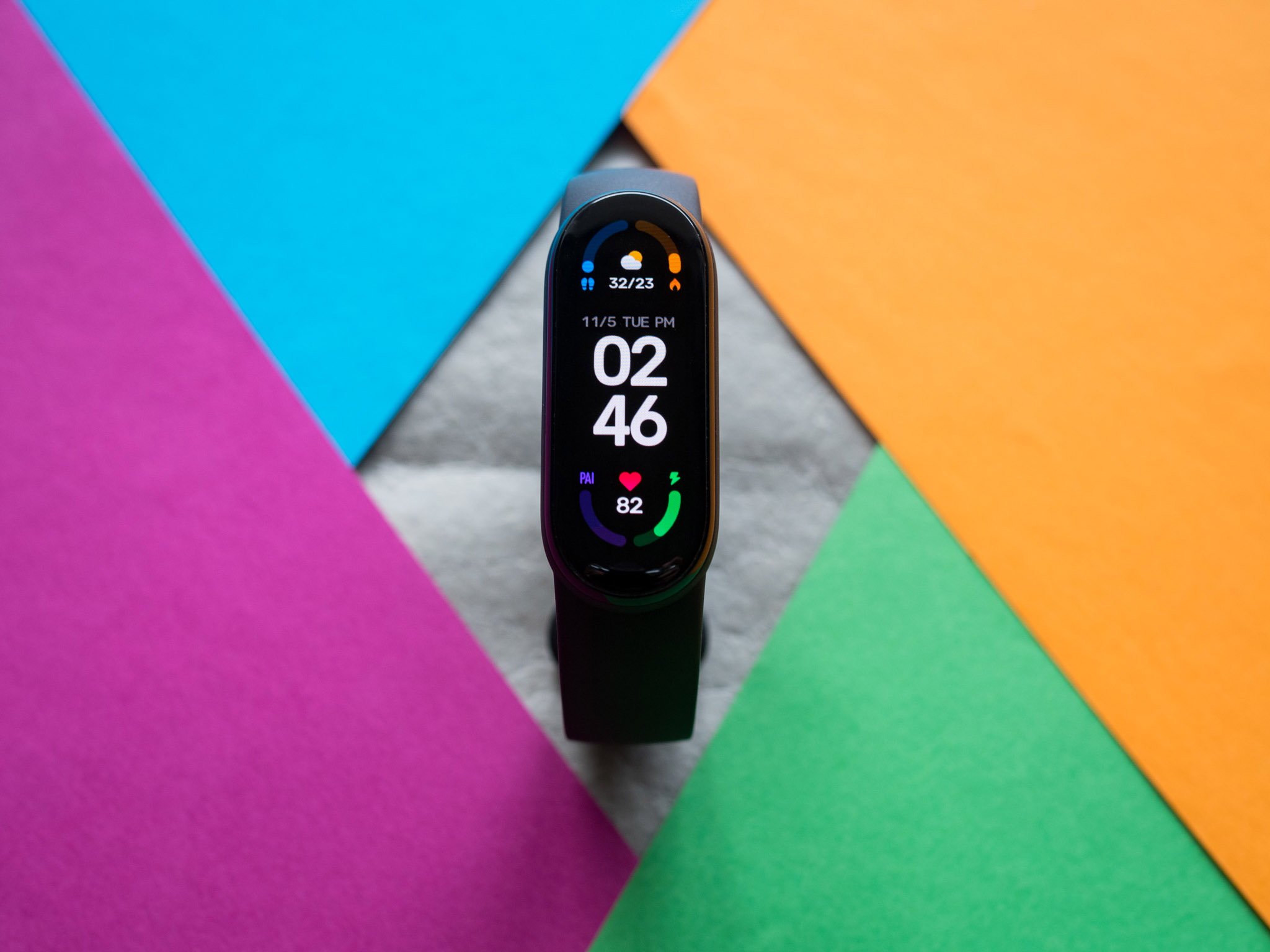
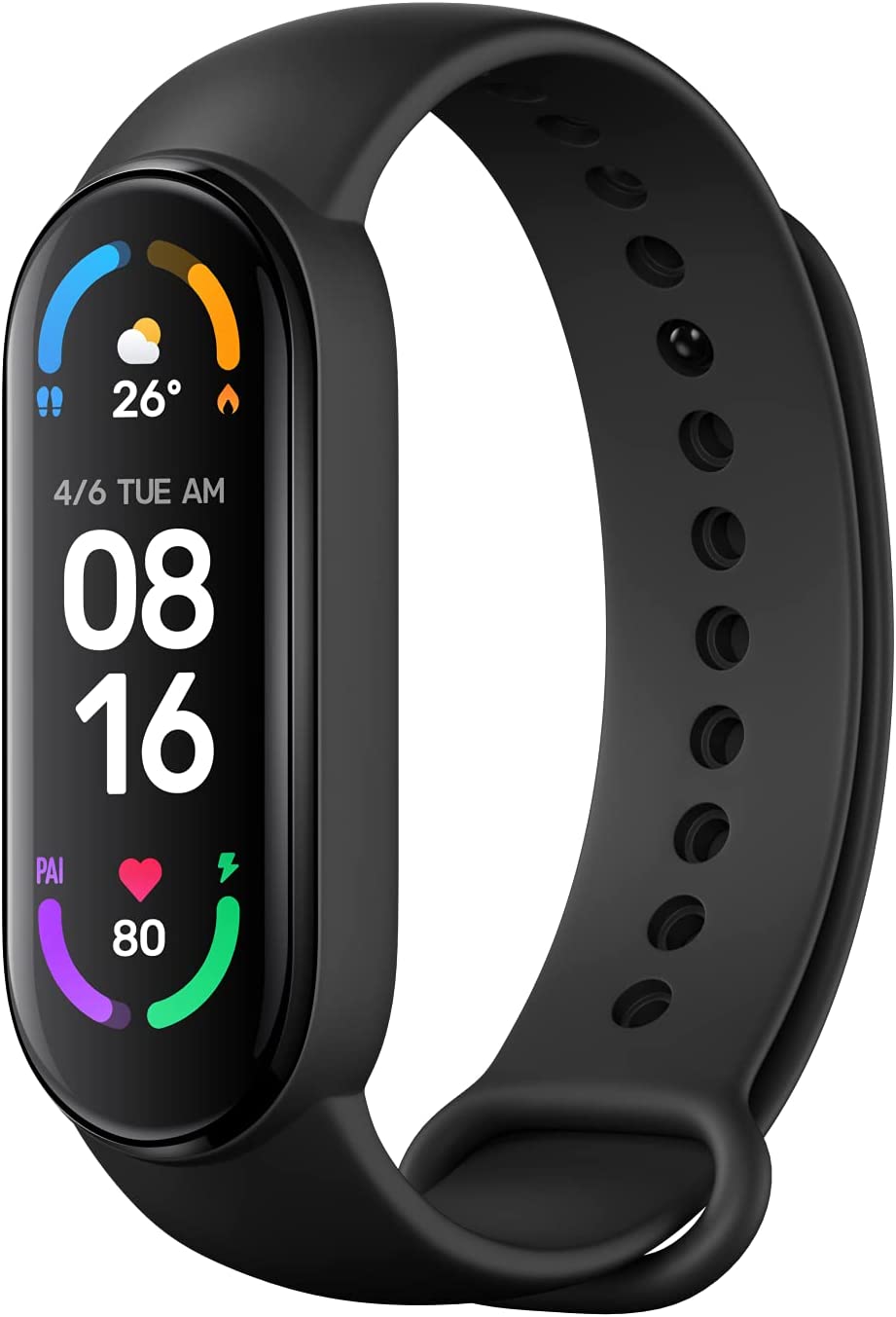
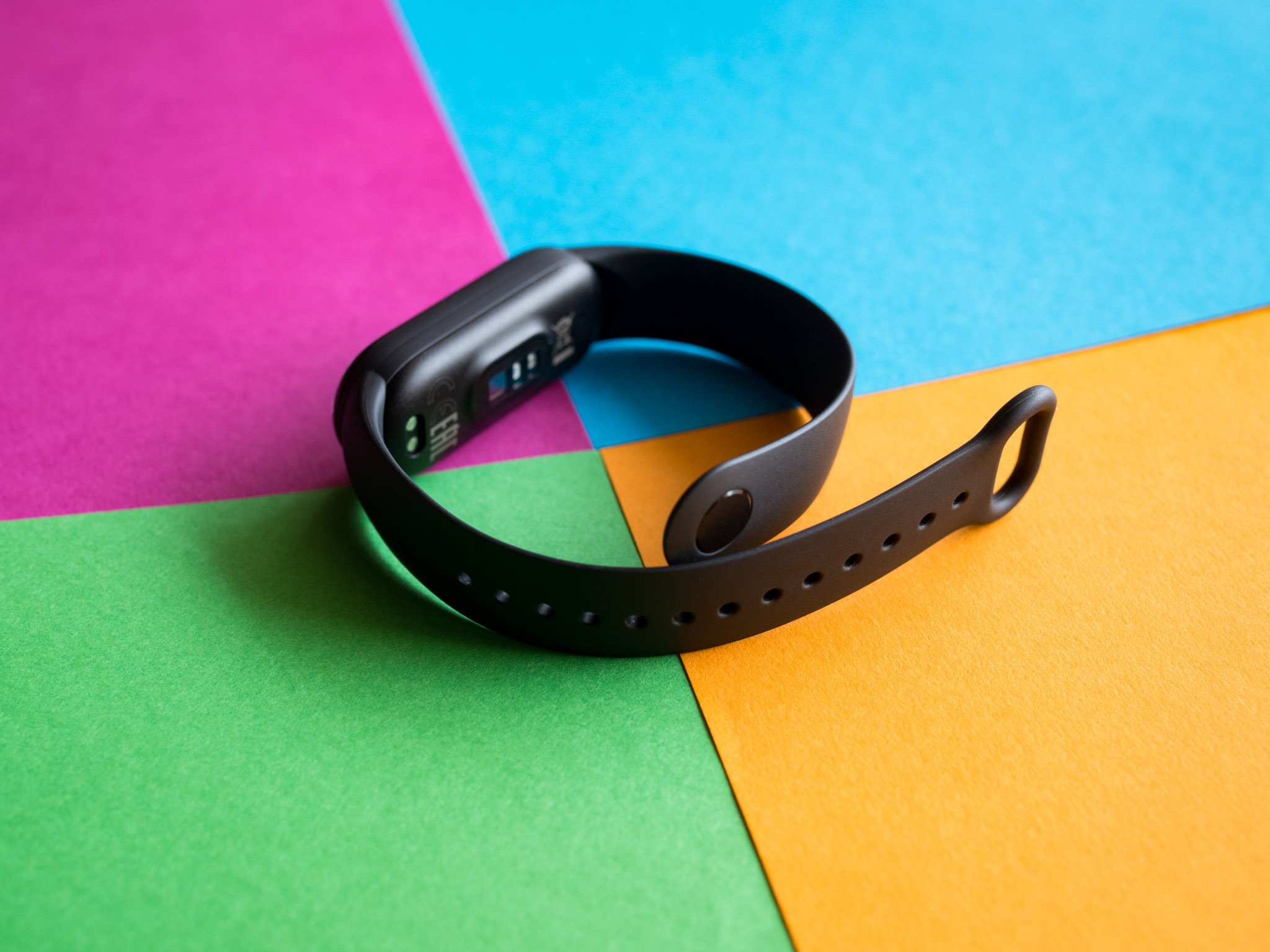
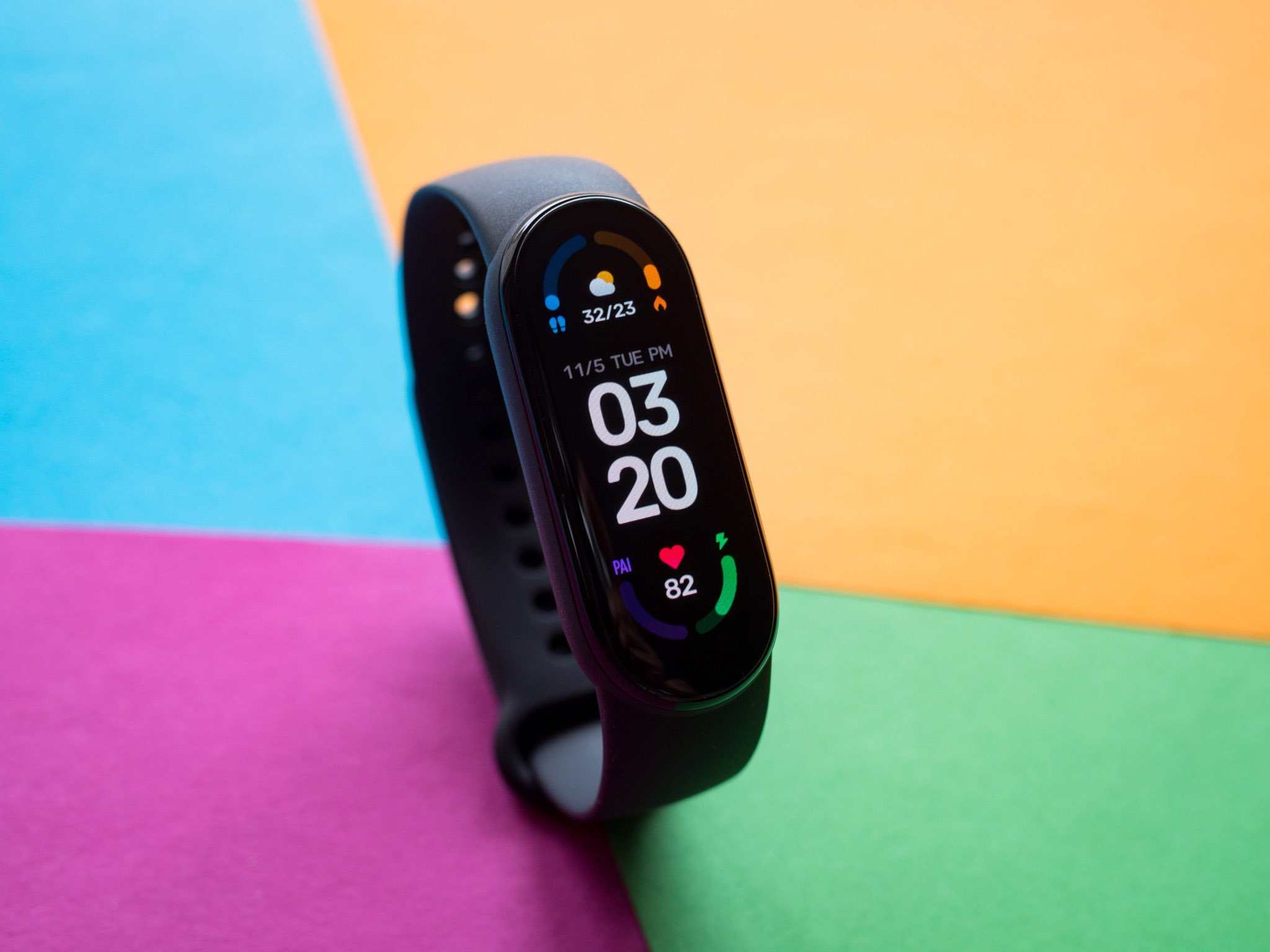
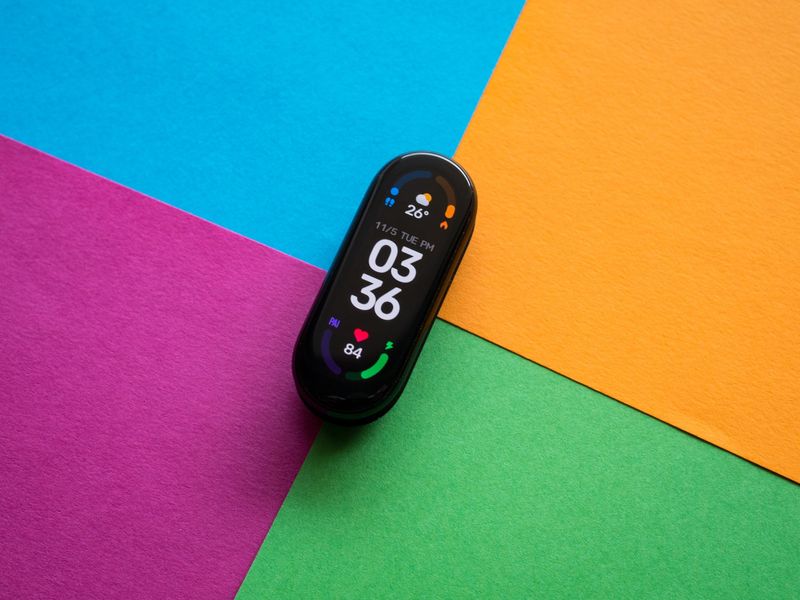
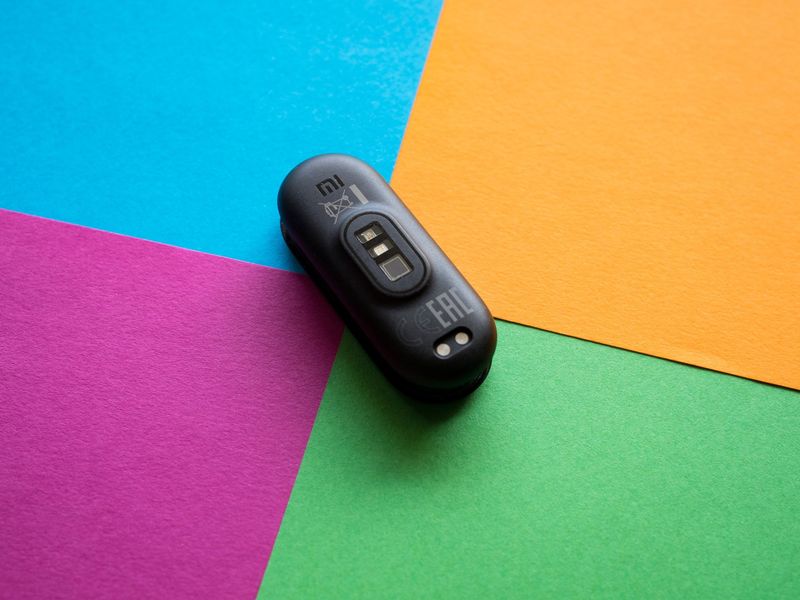
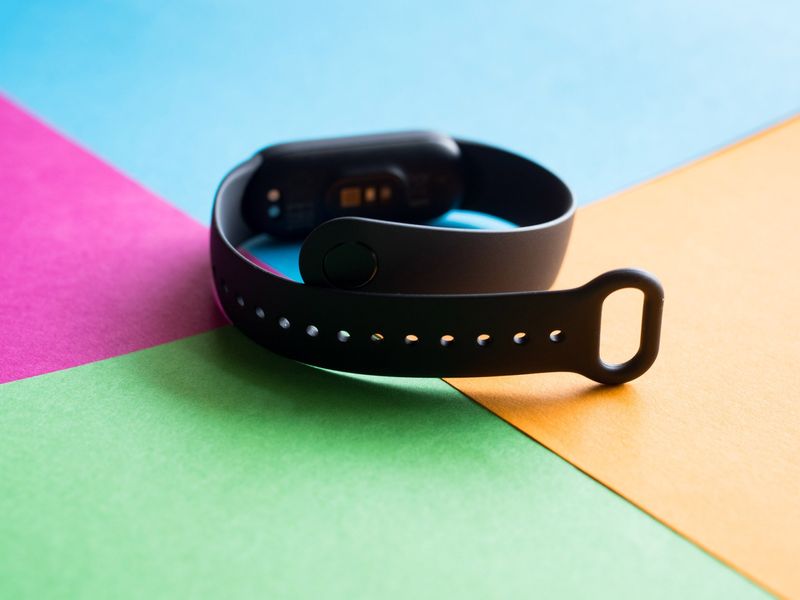
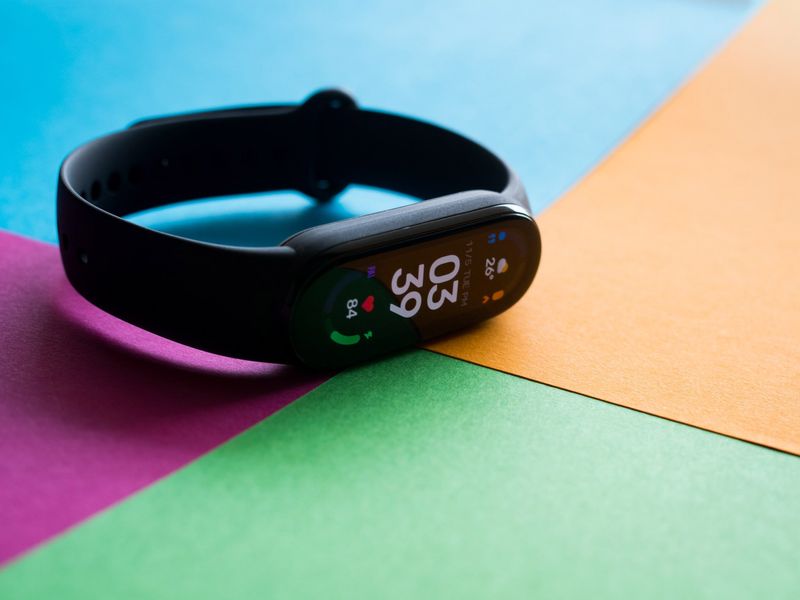
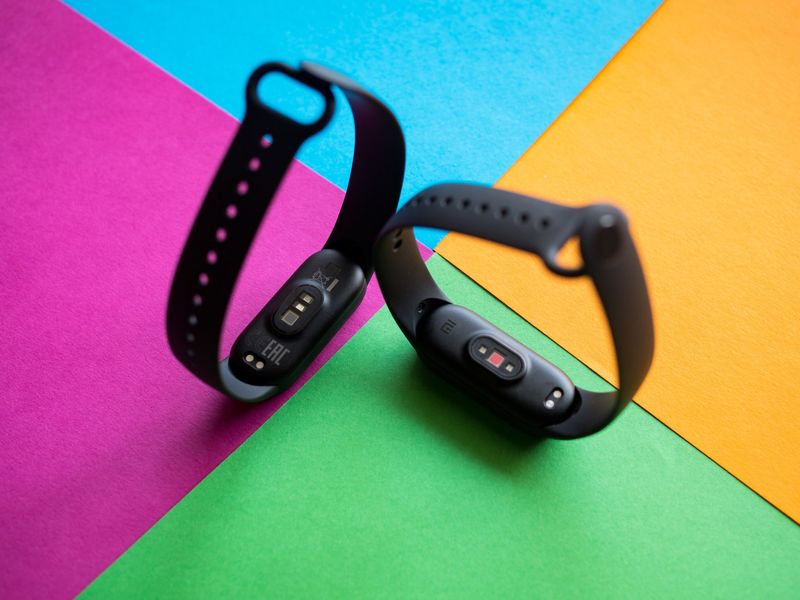
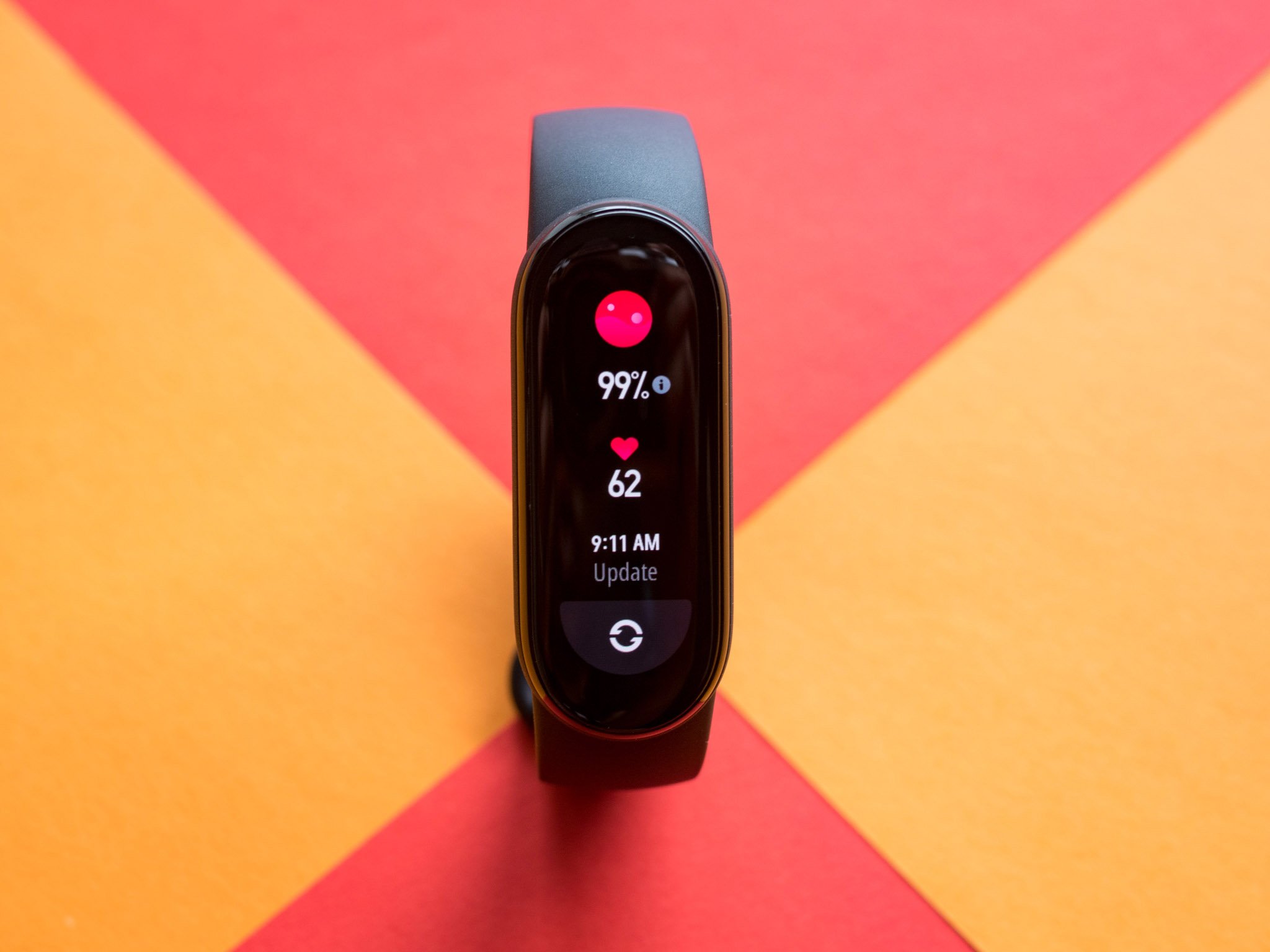
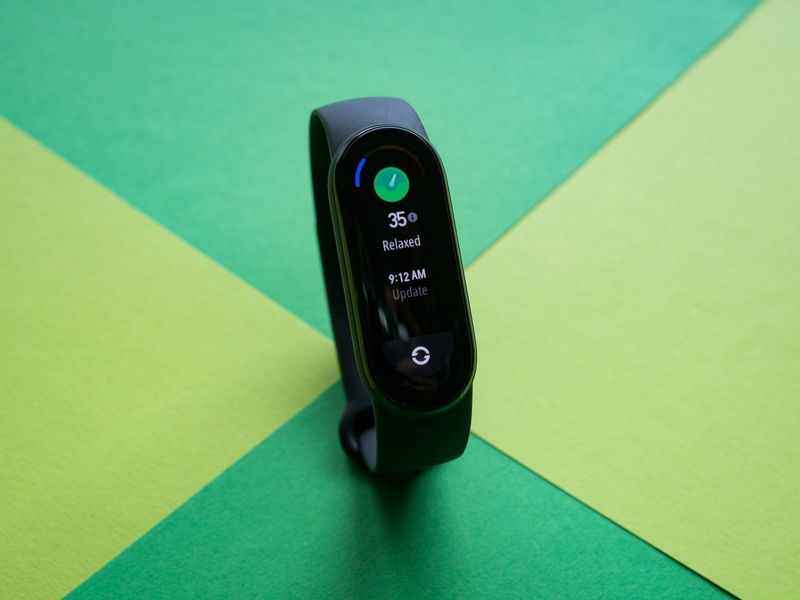
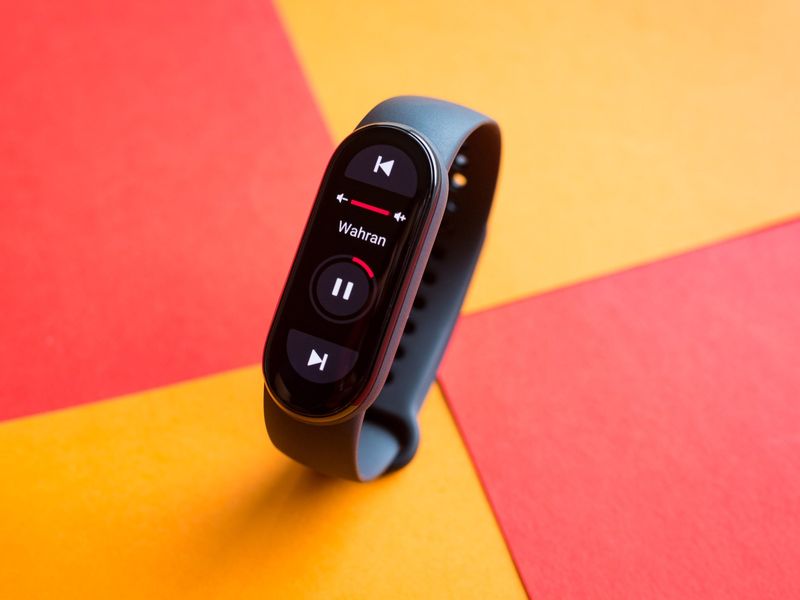
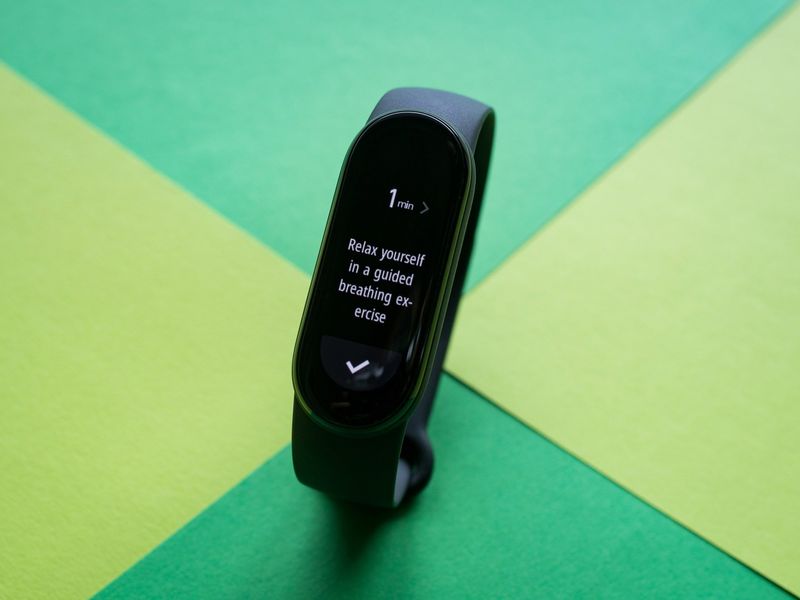
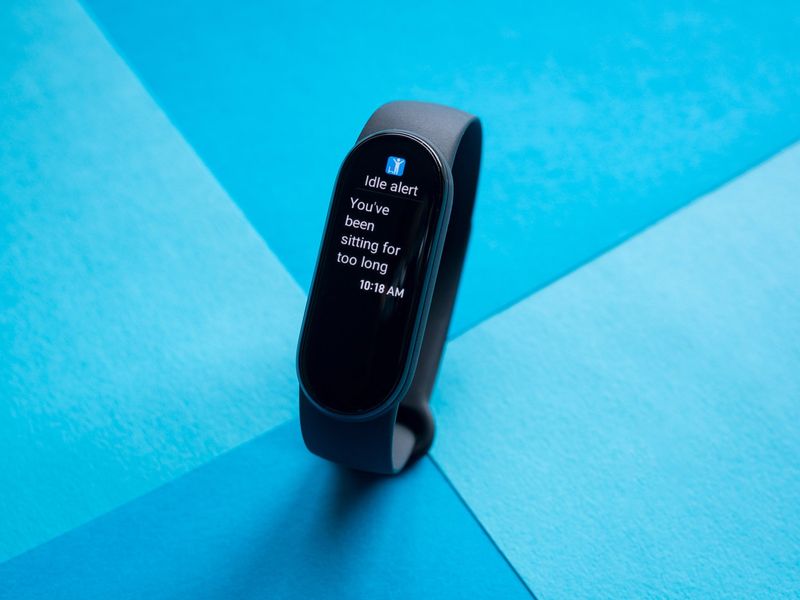
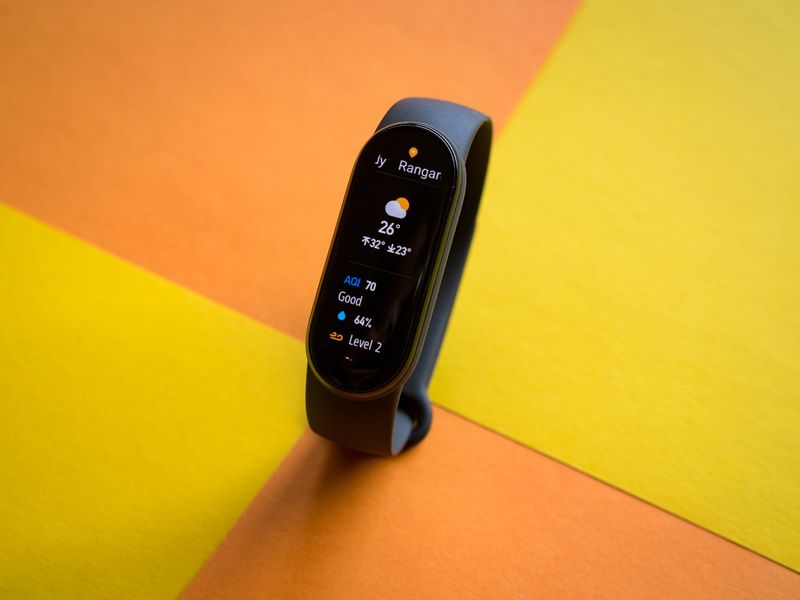
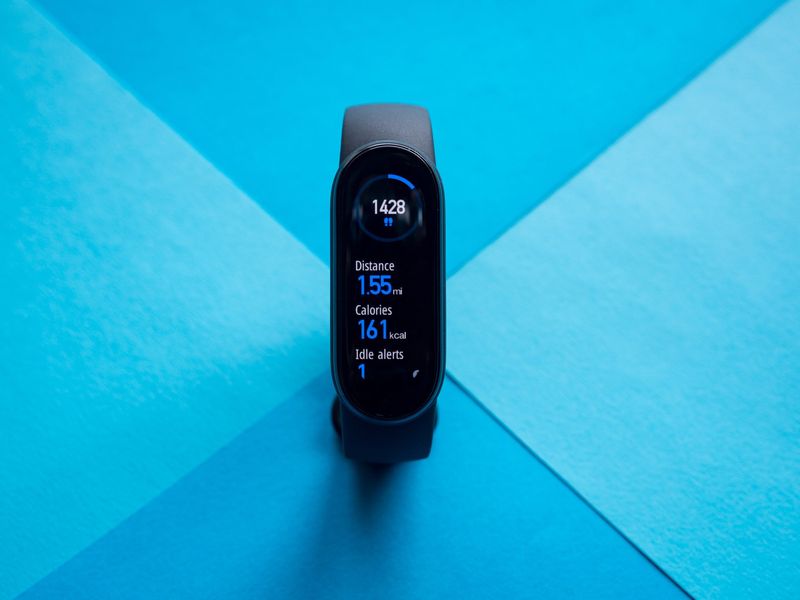
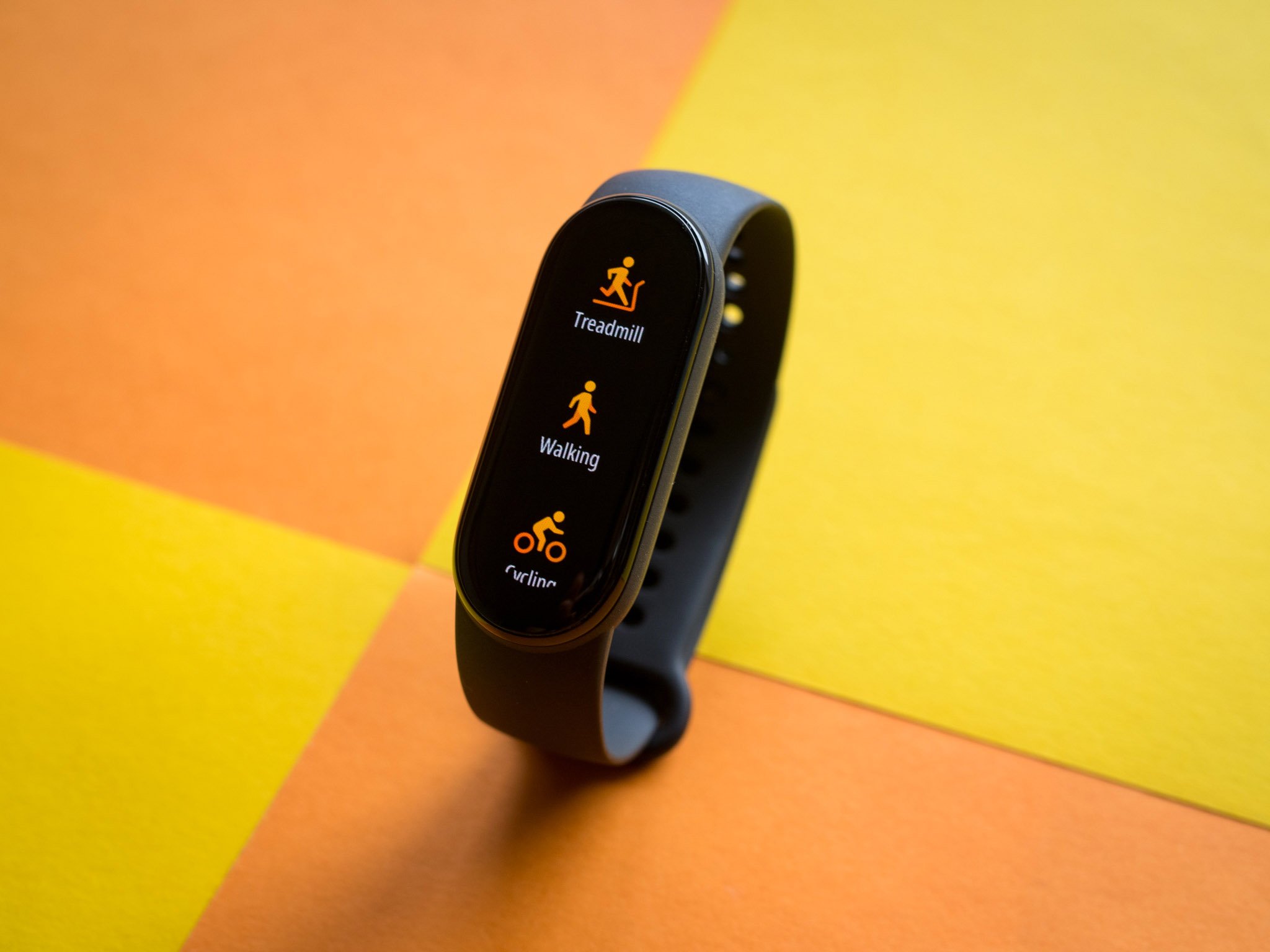
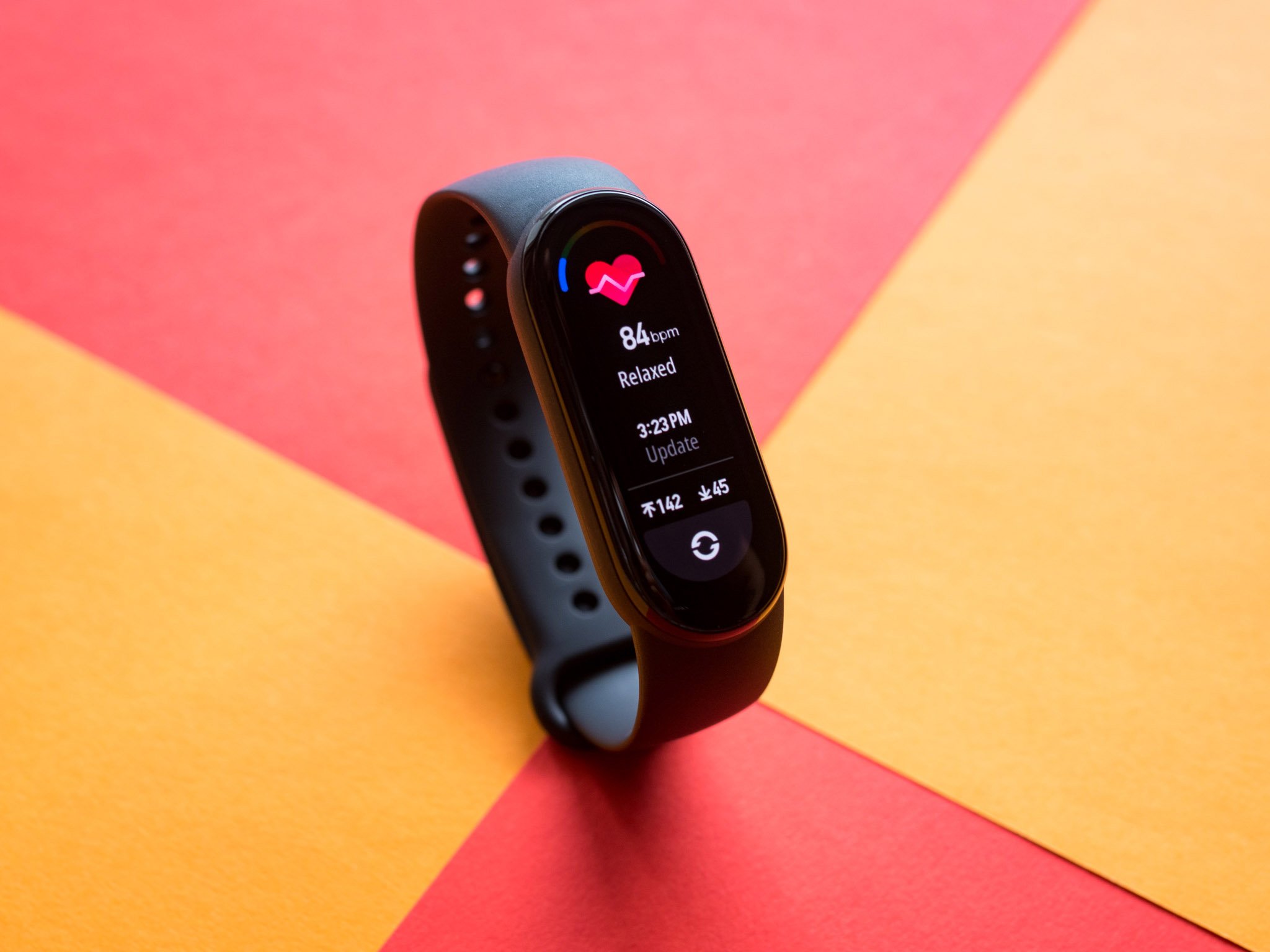
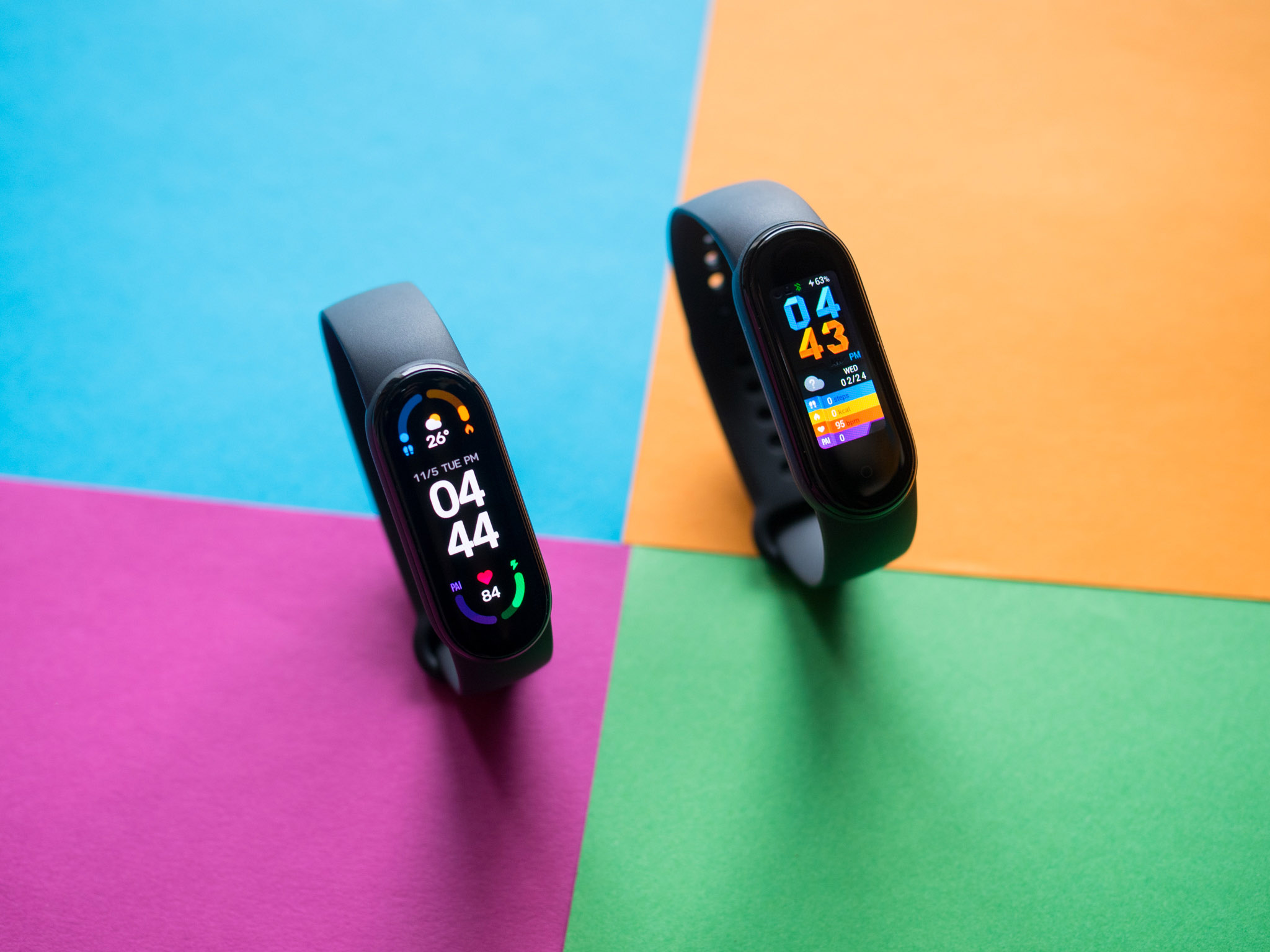
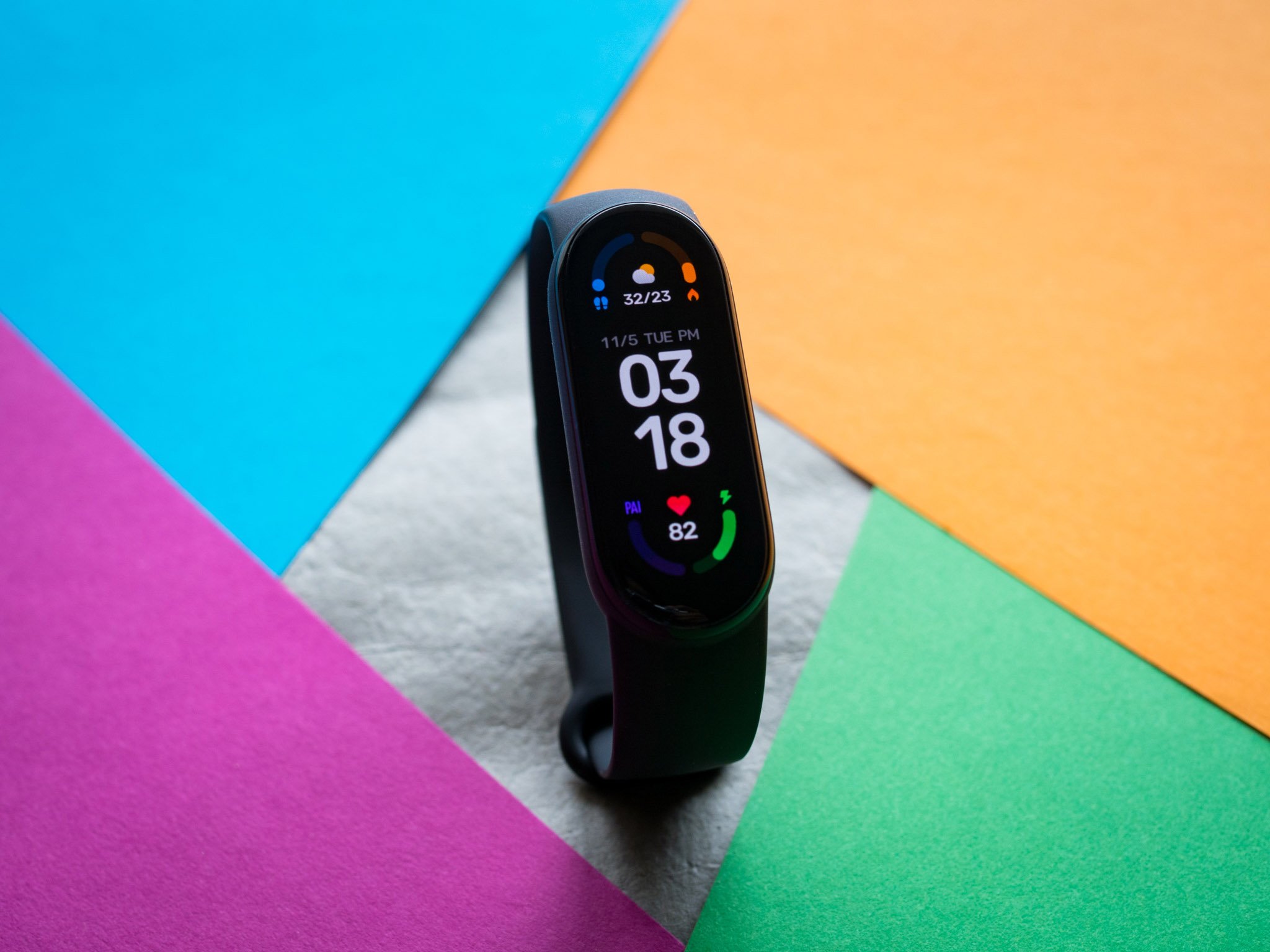
0 Commentaires